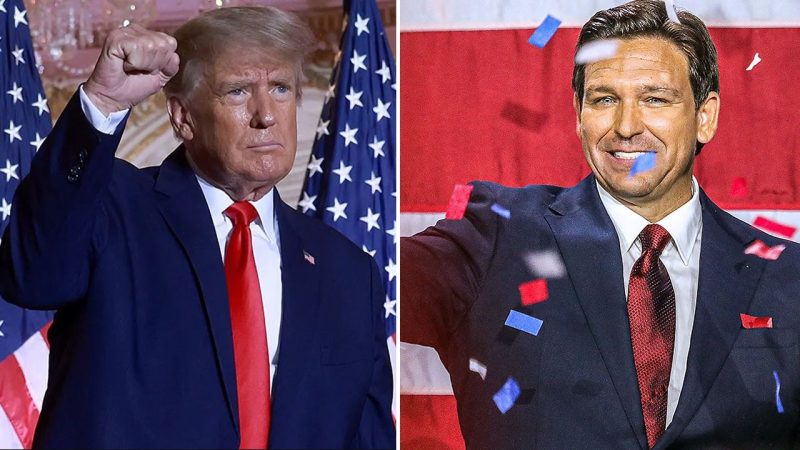
‘Spreading lies’: The government should regulate AI-powered political campaign ads: UC Berkeley professor
The Federal Election Commission (FEC) must consider whether it needs to set rules to prevent political campaigns from using artificial intelligence to create ads intended to deceive voters as the 2024 election cycle moves into full swing, an AI image analyst said.
‘The FEC will need to consider whether and how to regulate a campaign’s use of manipulated media in the service of its own candidate,’ Hany Farid, a University of California, Berkeley professor, wrote in a recent opinion piece for The Hill. ‘Manipulating the photographic record is only the first step in spreading lies.’
Presidential campaigns have already started using artificial intelligence to deceptively manipulate their campaign ads. Most notably, Florida Gov. Ron DeSantis’ campaign used AI-generated audio and video to criticize former President Trump’s policies, such as one portraying a fictional image of Trump affectionately hugging Anthony Fauci.
U.C. BERKELEY PROFESSOR WARNS ABOUT DEEPFAKE AI IMAGES AND VIDEOS:
‘The issue, however, is not fundamentally one of AI or technology, but of the standards to which we want to hold our current and future leaders,’ Farid said. ‘To this end, it seems eminently reasonable to insist that our politicians be truthful.’
A PAC supporting DeSantis created an ad with AI-generated audio mimicking Trump’s voice criticizing Iowa Gov. Kim Reynolds. The AI voice appears to have been based on comments Trump wrote on Truth Social but never said aloud.
Another video, distributed by Trump’s campaign, used artificial intelligence to recreate DeSantis’ 2024 presidential announcement on Twitter. The parody featured a Twitter Space with fictional guests, including billionaire Democratic donor George Soros, World Economic Forum Chair Klaus Schwab, former Vice President Dick Cheney, Adolph Hitler, the devil and the FBI.
‘The disinformation campaigns are now going to be fueled with generative AI audio, images and videos,’ Farid told Fox News in April. ‘Anytime I see the president speak or a candidate speak or a CEO speak or a reporter speak, now there’s this lingering doubt.’
The FEC advanced a petition last week, filed by the nonprofit Public Citizen, which seeks to include deceptive AI-generated content in the commission’s ban against ‘fraudulent misrepresentation’ in campaign ads. The FEC will consider additional action after the public comment period ends Oct. 16.
Lawmakers have also told Fox News they are concerned over how AI will influence elections, particularly the 2024 presidential race.
‘Right now, we’re in the Wild West,’ Connecticut Democrat Sen. Richard Blumenthal told Fox News in late July. ‘AI enables, not only in effect, appropriation of creative products … but also impersonation, deepfakes, a lot of bad stuff.’
Meanwhile, the AI Accountability Act is making its way through the House. The bill, if it becomes law, would direct Commerce Department officials to meet with industry stakeholders and produce a report within 18 months of passage regarding threats from AI systems.
‘The landscape of photographic manipulation is long and varied and will continue to evolve beyond today’s generative AI,’ Farid wrote. ‘The power of generative AI, when coupled with the reach and speed of social media’s distribution and amplification, is a real threat to an information ecosystem already polluted with half-truths, lies and conspiracies.’
To watch Digital Originals’ latest interview with Farid, click here.
